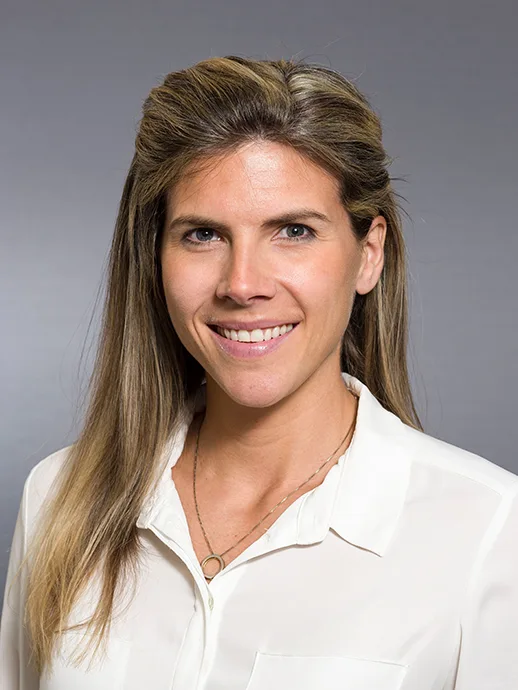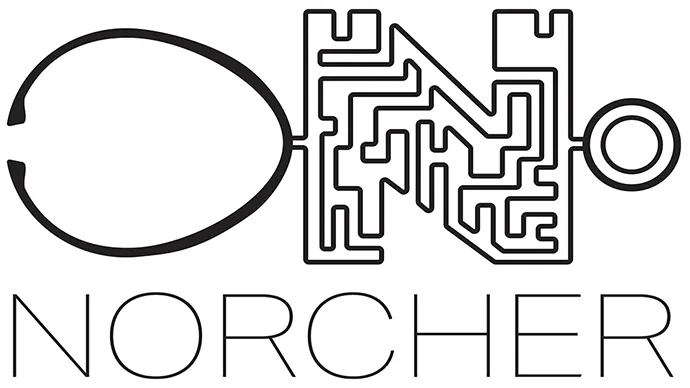Fully booked - SIGN UP FOR WAITING LIST
Part I: Seminar (Open to all)
Wednesday, 24th May 2023 (9:30-12:00) Coffee at 09:00
Place: Auditorium 5 (2nd floor), Domus Academica, Karl Johans gt. 47
Healthcare decisions are increasingly being made based limited evidence of various quality, leading to increased uncertainty. Join Drs. Goldhaber-Fiebert, Alarid-Escudero and Kunst to hear when and how decision making can be improved by explicitly considering these uncertainties. The seminar is relevant for all users and consumers of economic evaluations used for reimbursement decisions.
Presenters: Jeremy Goldhaber-Fiebert, PhD (Stanford University), Fernando Alarid-Escudero, PhD (Stanford University), Natalia Kunst, PhD (University of Oslo, Norwegian Directorate of Health)
Part II: Hands-on Workshop (PhD credit optional)
Thursday, 25th May (9:00-17:00) – coffee at 08:30 Place: Datastue Limbo (3rd floor), Ole-Johan Dahls hus (Forskningsparken)
Friday, 26th May 2023 (9:30-16:00) - coffe at 09:00
Place before lunch: Smalltalk Auditorium (1st floor, Ole-Johan Dahls hus (Forskningsparken) Place after lunch: Datastue Limbo (3rd floor), Ole-Johan Dahls hus (Forskningsparken)
The purpose of this course is to introduce value of information (VOI) analysis and the use of all VOI measures in decision modelling to improve decision making in healthcare and use it as a tool for research prioritization and study design. The course will introduce these measures, discuss their presentation and assumptions, and teach their application through hands-on exercises.
Course instructors/coordinators: Jeremy Goldhaber-Fiebert, PhD (Stanford University);
Fernando Alarid-Escudero, PhD (Stanford University); Natalia Kunst, PhD (UiO, Norwegian Directorate of Health); Eline Aas, PhD (UiO, Norwegian Institute of Public Health); Emily Burger, PhD (UiO, Harvard Center for Health Decision Science)
Detailed course schedule of the hands-on workshop
Overview
Value of information (VOI) is a key concept in decision analysis that can be used to determine research priorities, inform resource allocation for potential further research and design proposed research studies. The first part of this course will introduce the general concepts behind VOI, present several key VOI measures and highlight where they can be most useful in directing future research. It will also demonstrate key graphical presentations of these measures and critically evaluate VOI analyses and their underlying assumptions. The second part of this course will present computation methods for the Expected Value of Sample Information (EVSI), a decision-theoretic measure of the monetary value of collecting additional information through potential future research. Participants will discuss EVSI and how it can be used to design research studies. The course will then give a demonstration of how to efficiently compute EVSI in practice with accompanying code provided in R.
Format Requirements
This course is a mixture of lectures, discussion and hands-on practice. The lectures will present the definition of key VOI measures, discuss the assumptions underpinning VOI analyses and demonstrate a number of graphical displays for VOI measures. Participants will discuss and interpret examples of VOI analysis from the literature. The lectures will further present EVSI as a tool to design clinical research and the recently developed computation methods. Following the hands-on exercises through worked-examples, we will provide R code so that participants can continue to explore what they learn during the course.
Prerequisites
Participants should have some knowledge of health economic evaluation/decision-analytic modeling and probabilistic analysis. Some knowledge of Bayesian methods is helpful but not required.
Description Objectives
The purpose of this course is to introduce VOI measures and their use in decision modelling and to introduce EVSI as a tool for research prioritization and study design. The course will introduce these measures, discuss their presentation and assumptions. By the end of the course, participants will be able to:
Part I
- Interpret the Expected Value of Perfect Information (EVPI)
- Interpret the Expected Value of Perfect Partial Information (EVPPI)
- Interpret the Expected Value of Sample Information (EVSI)
- Interpret the Expected Net Benefit of Sampling (ENBS)
- Discuss key assumptions that impact a VOI analysis
- Explore the results of a VOI analysis using graphical displays (Hands-on case example)
- Critically evaluate the assumptions underpinning VOI analyses
- Understand how VOI analysis can be used to determine research priorities and design clinical research.
Part II
- Describe recently developed calculation methods for EVSI
- Assess EVSI calculation methods in terms of suitability for a given health economic decision model
- Calculate EVSI in R for two different health economic models (Hands-on case example)
- Present EVSI analyses using standardized, publication-quality graphics
- Discuss key assumptions for calculating the Expected Net Benefit of Sampling (ENBS)
- Design efficient future research studies by determining their optimal sample sizes
- Reference and access sources of advanced VOI methods
Literature
- Fenwick E, Steuten L, Knies S, Ghabri S, Basu A, Murray JF, Koffijberg HE, Strong M, Sanders Schmidler GD, Rothery C. Value of Information Analysis for Research Decisions-An Introduction: Report 1 of the ISPOR Value of Information Analysis Emerging Good Practices Task Force. Value Health. 2020 Feb;23(2):139-150. doi: 10.1016/j.jval.2020.01.001. PMID: 32113617.
- Rothery C, Strong M, Koffijberg HE, Basu A, Ghabri S, Knies S, Murray JF, Sanders Schmidler GD, Steuten L, Fenwick E. Value of Information Analytical Methods: Report 2 of the ISPOR Value of Information Analysis Emerging Good Practices Task Force. Value Health. 2020 Mar;23(3):277-286. doi: 10.1016/j.jval.2020.01.004. PMID: 32197720; PMCID: PMC7373630.
- Wilson, E.C.F. A Practical Guide to Value of Information Analysis. PharmacoEconomics33, 105–121 (2015). https://doi.org/10.1007/s40273-014-0219-x
- Kunst N, Wilson ECF, Glynn D, Alarid-Escudero F, Baio G, Brennan A, Fairley M, Goldhaber-Fiebert JD, Jackson C, Jalal H, Menzies NA, Strong M, Thom H, Heath A; Collaborative Network for Value of Information. Computing the Expected Value of Sample Information Efficiently: Practical Guidance and Recommendations for Four Model-Based Methods. Value Health. 2020 Jun;23(6):734-742. doi: 10.1016/j.jval.2020.02.010. Epub 2020 May 27. PMID: 32540231; PMCID: PMC8183576.
- Heath A, Kunst N, Jackson C, Strong M, Alarid-Escudero F, Goldhaber-Fiebert JD, Baio G, Menzies NA, Jalal H. Calculating the Expected Value of Sample Information in Practice: Considerations from 3 Case Studies. Med Decis Making. 2020 Apr;40(3):314-326. doi: 10.1177/0272989X20912402. Epub 2020 Apr 16. PMID: 32297840; PMCID: PMC7968749.
- Heath A, Strong M, Glynn D, Kunst N, Welton NJ, Goldhaber-Fiebert JD. Simulating Study Data to Support Expected Value of Sample Information Calculations: A Tutorial. Med Decis Making. 2022 Feb;42(2):143-155. doi: 10.1177/0272989X211026292. Epub 2021 Aug 13. PMID: 34388954; PMCID: PMC8793320.
- Heath A, Manolopoulou I, Baio G. Efficient Monte Carlo Estimation of the Expected Value of Sample Information Using Moment Matching. Med Decis Making. 2018 Feb;38(2):163-173. doi: 10.1177/0272989X17738515. Epub 2017 Nov 10. PMID: 29126364.
- Jalal H, Goldhaber-Fiebert JD, Kuntz KM. Computing Expected Value of Partial Sample Information from Probabilistic Sensitivity Analysis Using Linear Regression Metamodeling. Med Decis Making. 2015 Jul;35(5):584-95. doi: 10.1177/0272989X15578125. Epub 2015 Apr 3. PMID: 25840900; PMCID: PMC4978941.
- Jalal H, Alarid-Escudero F. A Gaussian Approximation Approach for Value of Information Analysis. Med Decis Making. 2018 Feb;38(2):174-188. doi: 10.1177/0272989X17715627. Epub 2017 Jul 22. PMID: 28735563; PMCID: PMC8608426.
- Menzies NA. An Efficient Estimator for the Expected Value of Sample Information. Med Decis Making. 2016 Apr;36(3):308-20. doi: 10.1177/0272989X15583495. Epub 2015 Apr 24. PMID: 25911600.
- Strong M, Oakley JE, Brennan A, Breeze P. Estimating the Expected Value of Sample Information Using the Probabilistic Sensitivity Analysis Sample: A Fast, Nonparametric Regression-Based Method. Medical Decision Making. 2015;35(5):570-583. doi:10.1177/0272989X15575286
- Kunst NR, Alarid-Escudero F, Paltiel AD, Wang SY. A Value of Information Analysis of Research on the 21-Gene Assay for Breast Cancer Management. Value Health. 2019 Oct;22(10):1102-1110. doi: 10.1016/j.jval.2019.05.004. Epub 2019 Aug 7. PMID: 31563252; PMCID: PMC7343670.
Course instructor coordinator bios

Jeremy Goldhaber-Fiebert, PhD, is a Professor of Health Policy, a Core Faculty Member at the Center for Health Policy and the Department of Health Policy, and a Faculty Affiliate of the Stanford Center on Longevity and Stanford Center for International Development. His research focuses on complex policy decisions surrounding the prevention and management of increasingly common, chronic diseases and the life course impact of exposure to their risk factors. In the context of both developing and developed countries including the US, India, China, and South Africa. He combines simulation modeling methods and cost-effectiveness analyses with econometric approaches and behavioral economic studies to address these issues. Dr. Goldhaber-Fiebert completed his PhD in Health Policy concentrating in Decision Science at Harvard University in 2008. He was elected as a Trustee of the Society for Medical Decision Making in 2011 and Secretary/Treasurer in 2021.

Fernando Alarid-Escudero, PhD, is an Assistant Professor of Health Policy at Stanford University School of Medicine. His research focuses on developing statistical and decision-analytic models to identify optimal prevention, control, and treatment policies to address a wide range of public health problems and develops novel methods to quantify the value of future research. He also co-founded the Decision Analysis in R for Technologies in Health (DARTH) workgroup (http://darthworkgroup.com) and the Collaborative Network on Value of Information (ConVOI; https://www.convoi-group.org), international and multi-institutional collaborative efforts where we develop transparent and open-source solutions to implement decision analysis and quantify the value of potential future investigation for health policy analysis. He obtained his PhD in Health Decision Sciences from the University of Minnesota School of Public Health.

Natalia Kunst, PhD, is currently engaged in health policy-making and research in Norway through two positions. She is a Senior Advisor at the Norwegian Directorate of Health and an Associate Professor in the University of Oslo. Currently, Dr. Kunst is also a Research Affiliate at the Yale University and an Affiliated Member at the Center for Healthcare Research in Pediatrics (CHeRP), Harvard Medical School. She co-founded and has co-led the Collaborative Network for Value of Information (ConVOI), which is an international group of over 20 researchers with interests in the application and development of VOI methods. Dr. Kunst is a decision sciences and health economics researcher who focuses on applying decision-analytic and statistical methods in cancer, genetics and precision medicine to assess and identify efficient strategies that would improve patients’ health outcomes, and to design and prioritize clinical research in limited-resource settings, also focusing on health disparities.

Emily Burger, PhD, is an Associate Professor at the University of Oslo, Department of Health Management and Health Economics (Oslo, Norway) and holds an academic appointment as a Research Scientist at the Harvard Center for Health Decision Science (Boston, MA, USA). Her current research primarily involves using decision-analytic methods to design and evaluate new preventive policies for cancer control, with a focus on evaluating high-priority questions to increase resource efficiency in the context of both high- and low-resource settings. Dr. Burger’s work has helped inform current USPFTF cervical cancer screening guidelines, global cervical cancer elimination policy for the World Health Organization and helped inform national cervical and HPV control policies in Norway. Dr. Burger is a co-investigator of the US NCI-sponsored CISNET comparative modeling consortium as well as of the PATH single-dose HPV vaccination consortium.

Eline Aas, PhD, is a Professor at the Department of Health Management and Health Economics, University of Oslo, holds a joint-position at the Norwegian Institute of Public Health, and is a member of the Medical Faculty Board. Her current research is primarily related to economic evaluations alongside clinical trials, decision analytic modeling, registry data analyses and inequalities in health. Prof. Aas has been involved evaluations of clinical trials in several areas including, screening for colorectal cancer, liver transplantation, cognitive behavior therapy for adolescence with post-traumatic stress disorder, hip fractures and rehabilitation for patients with traumatic brain injury. Registry data has been applied in several trials. Aas is the PI for several projects, including NORCHER, and teaches several masters-level courses in economic evaluation.
Arrangør
Avdeling for helseledelse og helseøkonomi. Følg oss på Facebook.
Kontakt: Kristi Brinkmann Lenander



